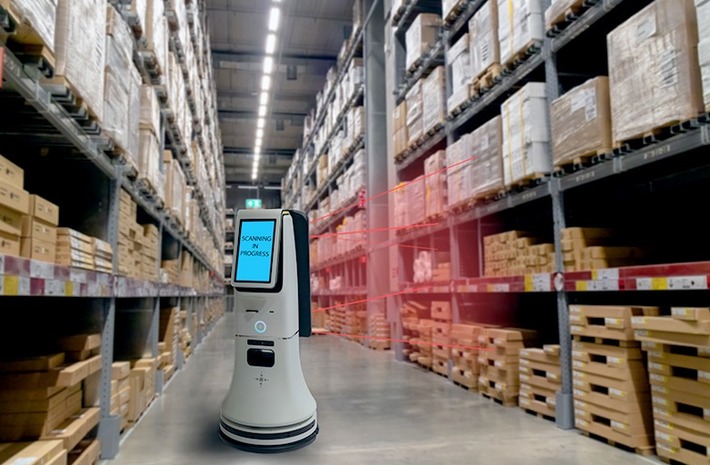

The Future of AI in Retail Inventory Management: Revolutionizing Supply Chain Efficiency
The retail industry has undergone significant transformations in recent years, driven by technological advancements, changing consumer behavior, and intense competition. One area that has been significantly impacted is inventory management, where Artificial Intelligence (AI) is set to play a crucial role in shaping the future of retail. AI-powered inventory management systems are poised to revolutionize supply chain efficiency, enabling retailers to stay ahead of the curve and maintain a competitive edge.
Current Challenges in Retail Inventory Management
Retail inventory management is a complex and dynamic process that involves managing millions of SKUs, tracking inventory levels, and optimizing stock replenishment. However, traditional inventory management systems often struggle to keep pace with the speed and complexity of modern retail. Some of the major challenges faced by retailers include:
- Inaccurate Demand Forecasting: Traditional demand forecasting methods are often based on historical sales data and fail to account for external factors such as weather, seasonality, and social media trends.
- Overstocking and Understocking: Inventory levels that are too high or too low can result in significant losses, wasted resources, and disappointed customers.
- Slow and Inefficient Inventory Counting: Manual inventory counting processes are time-consuming, prone to errors, and often disrupt regular business operations.
- Lack of Visibility: Inadequate visibility into inventory levels, supply chain operations, and demand patterns makes it difficult for retailers to make informed decisions.
The Rise of AI in Retail Inventory Management
AI-powered inventory management systems are designed to address these challenges by leveraging advanced analytics, machine learning algorithms, and real-time data to optimize inventory levels, improve demand forecasting, and streamline supply chain operations.
- Machine Learning-Based Demand Forecasting: AI algorithms can analyze vast amounts of data, including historical sales data, weather patterns, and social media trends, to create accurate and granular demand forecasts.
- AI-Driven Inventory Optimization: AI systems can analyze real-time inventory levels, sales data, and supply chain operations to identify opportunities for optimization, reduce waste, and improve profitability.
- Automated Inventory Counting: AI-powered inventory counting systems use computer vision, robotics, and sensor technologies to quickly and accurately count inventory, reducing manual errors and freeing up staff to focus on higher-value tasks.
- Real-Time Inventory Visibility: AI-powered inventory management systems provide real-time visibility into inventory levels, supply chain operations, and demand patterns, enabling retailers to respond quickly to changes in the market.
Benefits of AI in Retail Inventory Management
The adoption of AI in retail inventory management can bring numerous benefits, including:
- Improved Forecast Accuracy: AI-powered demand forecasting can reduce forecast errors by up to 50%, ensuring that retailers have the right products in stock to meet customer demand.
- Reduced Inventory Costs: AI-driven inventory optimization can reduce inventory costs by up to 20%, freeing up working capital and improving profitability.
- Increased Operational Efficiency: Automated inventory counting and AI-powered inventory management systems can reduce inventory counting time by up to 90%, enabling retailers to focus on higher-value tasks.
- Enhanced Customer Experience: AI-powered inventory management systems can ensure that products are always available when customers want them, improving customer satisfaction and loyalty.
Real-World Examples of AI in Retail Inventory Management
Several retailers are already leveraging AI to revolutionize their inventory management systems, including:
- Walmart: Walmart has developed an AI-powered inventory management system that uses machine learning algorithms to analyze sales data, weather patterns, and social media trends to optimize inventory levels and reduce stockouts.
- Home Depot: Home Depot has implemented an AI-powered inventory management system that uses computer vision and robotics to automate inventory counting and optimize inventory levels.
- Zara: Zara has developed an AI-powered inventory management system that uses real-time data analytics to optimize inventory levels, reduce waste, and improve supply chain efficiency.
Challenges and Limitations of AI in Retail Inventory Management
While AI has the potential to revolutionize retail inventory management, there are several challenges and limitations that retailers must consider, including:
- Data Quality: AI-powered inventory management systems require high-quality data to function effectively. Poor data quality can lead to inaccurate demand forecasting and suboptimal inventory management.
- Integration with Existing Systems: AI-powered inventory management systems must be integrated with existing ERP, CRM, and inventory management systems, which can be a complex and time-consuming process.
- Change Management: The adoption of AI-powered inventory management systems requires significant changes to business processes and staff training, which can be difficult to implement.
Conclusion
The future of AI in retail inventory management is promising, with the potential to revolutionize supply chain efficiency, improve forecast accuracy, and enhance customer experience. However, retailers must be aware of the challenges and limitations of AI-powered inventory management systems and take steps to address them. By leveraging AI and machine learning algorithms, retailers can stay ahead of the competition, drive business growth, and create a more efficient and effective retail operation.




